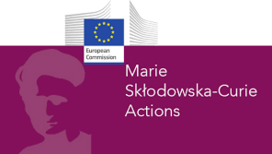Mösch-Zanetti Group
Transition metals play an important role in many biological and technical processes. Coordination chemistry lies at the center of modern inorganic chemistry. By appropriate design of metal complexes, biological questions, such as what is the role of metals in metalloenzymes, can therefore be addressed. Furthermore, technologically relevant materials such as catalysts can be developed.
In our group, we prepare transition metal complexes that represent biomimetic complexes for the active site of metalloenzymes. The main focus is on models for molybdenum and tungsten containing enzymes. Molybdenum enzymes catalyze the transfer of an oxygen atom (OAT), usually from a molecule of water, to a substrate. The Tungsten enzyme Acetylene Hydratase (AH) catalyzes the hydration of acetylene to yield acetaldehyde. We develop novel biomimetic ligands and complexes and investigate their activity with respect to the native enzyme.
An important technical application of OAT reactions represents the epoxidation of olefins. For this reason, we test our Mo- and related Re-complexes in various epoxidation reactions which allows the development of highly active catalysts.
For our basic research we use a wide range of different analytical tools. Most commonly we use NMR- (1D, 2D, VT), in-situ IR- and UV-Vis-spectroscopy, GC-MS, HPLC and X-ray crystallography. Air sensitive compounds are synthesized using Schlenk technique and glove-boxes.


